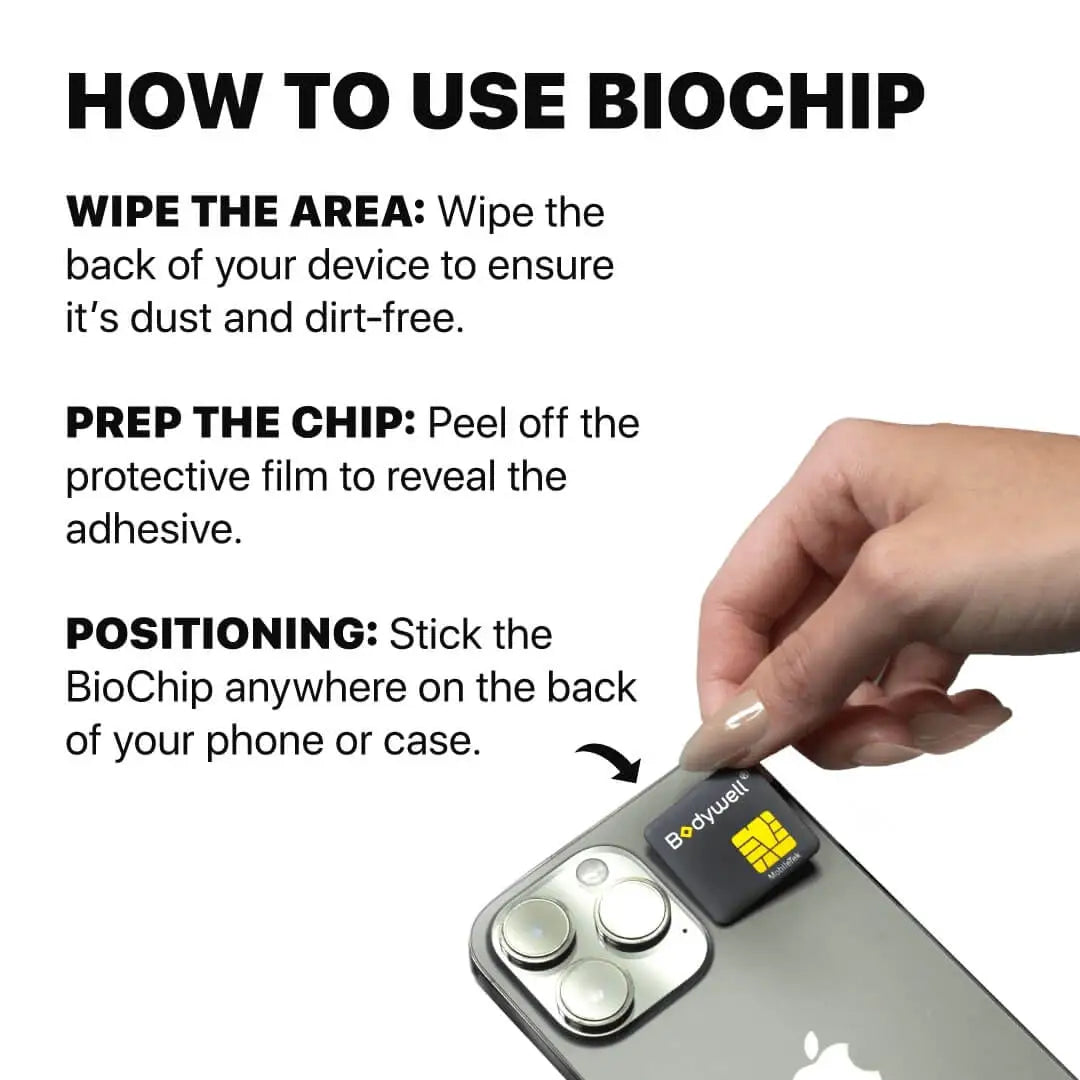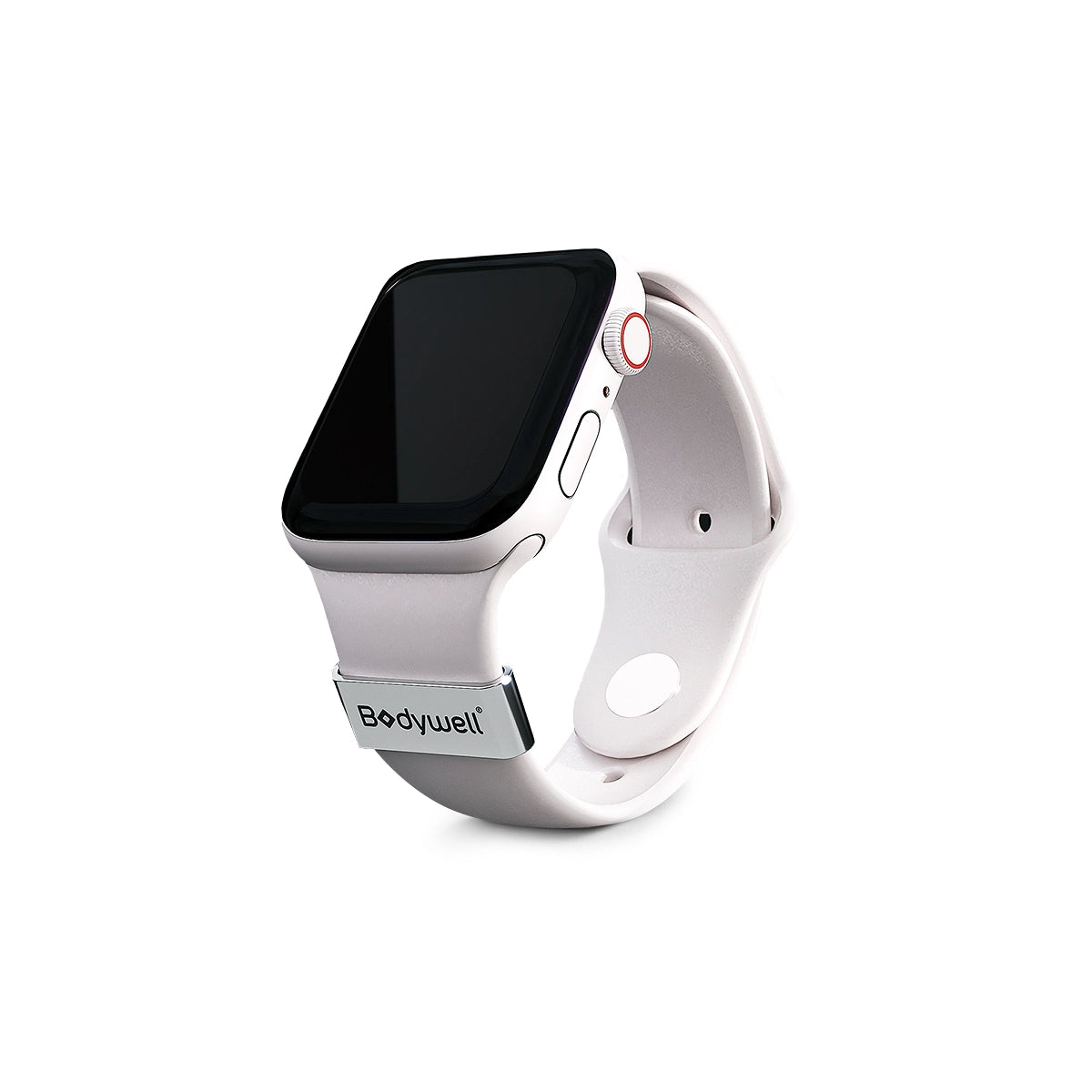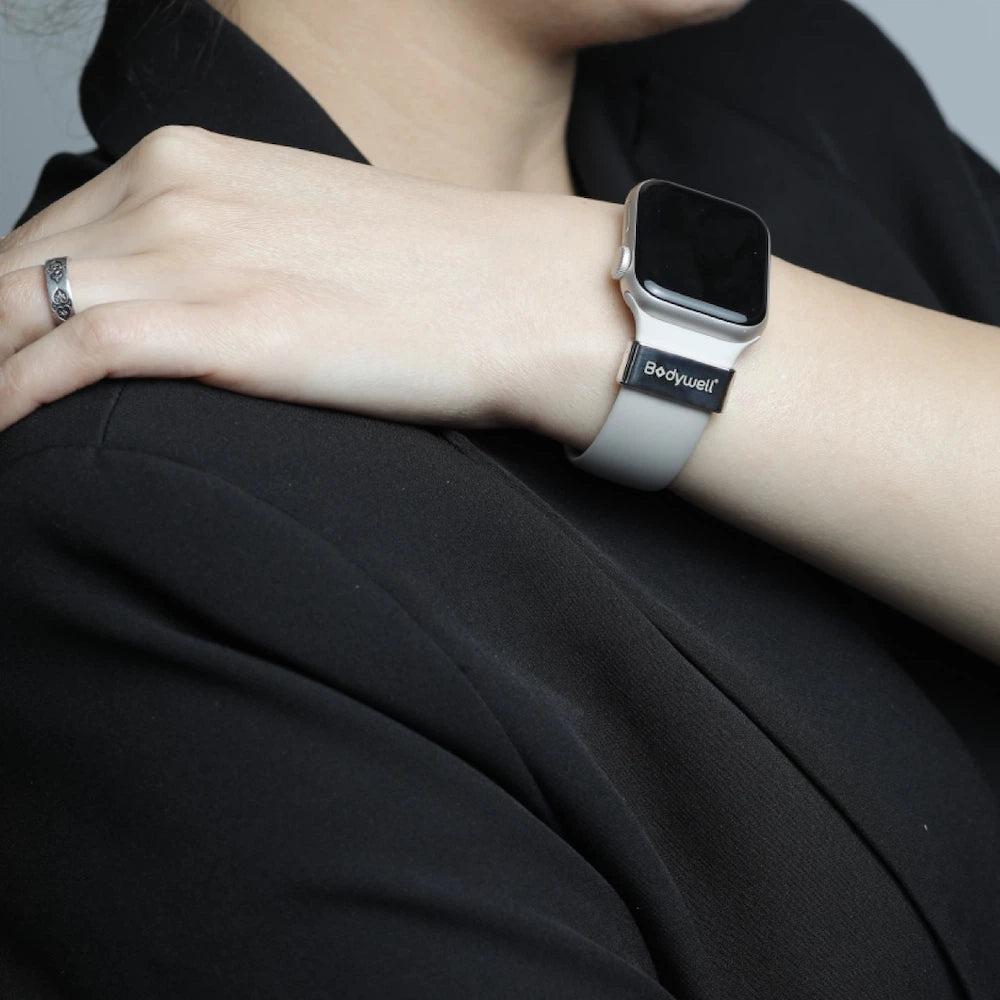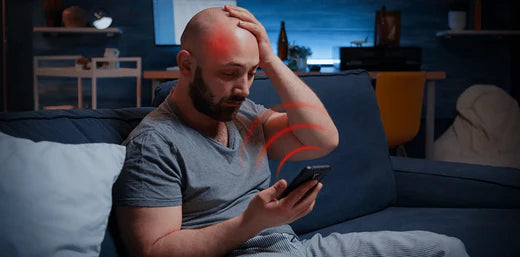In today's digital age, we are constantly surrounded by electronic devices, which emit electromagnetic fields (EMFs). A common concern is how EMFs and sleep quality are interconnected. Does sleeping with a phone in bed or other EMF sources nearby impact your ability to get restful sleep? This article explores the potential effects of EMF exposure on sleep and provides tips on how to protect yourself while sleeping.
What Are EMFs?
Electromagnetic fields, or EMFs, are made up of invisible electric and magnetic fields that are typically present in every electrically powered item, including electronics and medical equipment.
Two Types of EMF
EMF radiation can be classified into two categories.
Non-ionizing Radiation
This form of EMF is safe for humans and is encountered daily. It's the most common type. Natural sources include sunlight and the Earth's magnetic field, while man-made sources include power lines and everyday appliances like hairdryers and microwaves. It also includes radio waves used in Wi-Fi and cell phone signals and infrared radiation from heat lamps.
Non-ionizing radiation lacks the energy to harm our cells' DNA directly. However, long exposure can lead to a mild warming of tissues. Also, scientists are still figuring out what happens to our bodies when we're around low amounts of radio wave energy for a long time.
Ionizing Radiation
High-energy EMF radiation can directly harm cells and their vital instructions, requiring EMF protection. Excessive damage can cause health issues like cancer. Fortunately, ionizing radiation carries more energy and is less common in daily life. Examples include the sun's UV rays and radon gas. People also observe high radiation levels in medical X-rays and gamma rays used in procedures and power plants.
What Are The Side Effects Of EMF Exposure?
As mentioned, EMF exposure comes from various sources, including cell phones, Wi-Fi routers, and other electronic devices. Potential side effects of EMF exposure include headaches, dizziness, fatigue, and even an increased risk of certain cancers, although more research is needed to confirm these health risks. Understanding how EMFs interact with the body, particularly the brain, is crucial for assessing their impact on overall health.
How Can EMF Exposure Affect Sleep Quality?
Research indicates that electromagnetic fields (EMFs) can disrupt the body's circadian cycle and prevent melatonin from being produced. EMF exposure in the bedroom can disrupt sleep cycles and result in a variety of illnesses and symptoms, including:
- Disruption of Melatonin Production: Melatonin is the hormone responsible for regulating sleep-wake cycles. EMF exposure has been shown to reduce melatonin production, making it harder to fall asleep and stay asleep.
- Brainwave Interference: EMFs can affect brainwave patterns, leading to disturbances in the natural sleep cycle. This interference can result in lighter sleep stages and fewer restorative deep sleep phases.
- Increased Stress Levels: Exposure to EMFs can elevate stress hormones like cortisol, which can make it difficult to relax and unwind before bedtime.
- Fragmented Sleep: EMFs can cause micro-arousals during the night, leading to fragmented and less restful sleep. This can result in feeling tired and groggy even after a full night’s sleep.
How Far Away Should You Sleep From Your Phone?
To minimize the impact of EMFs on your sleep, it is advisable to keep your phone and other electronic devices at least three feet away from your bed. Avoid sleeping with your phone in bed or directly under your pillow, as this can increase your proximity to EMFs.
How Can I Protect Myself From EMFs When I Sleep?
There are several strategies you can adopt to protect yourself from EMF exposure while sleeping:
- Use EMF Protection Products: Invest in EMF radiation protection products designed to reduce EMF exposure can mitigate potential risks. Bodywell®, for instance, offers EMF radiation protection products that are proven effective through rigorous testing. Key benefits of using BioChip include:
- Thermal Reduction: Bodywell® products can reduce thermal absorption by up to 20%, helping to minimize heat-related effects from EMF exposure.
- Reduction in SAR: Bodywell® products have demonstrated an 80% reduction in SAR, significantly lowering the amount of radiation absorbed by the body.
- PH Recovery: Prolonged EMF exposure can disrupt the body's pH balance. Bodywell® products help recover pH levels by 100%, maintaining the body's natural equilibrium.
- Optimize Bedroom Layout: Arrange your bedroom to minimize EMF exposure. Keep electronic devices, including Wi-Fi routers and smart meters, away from your sleeping area. Ideally, all electronics should be turned off or placed outside the bedroom.
- Use Wired Connections: Whenever possible, use wired connections instead of Wi-Fi. This can significantly reduce the EMF levels in your home.
- EMF Safe Levels: Familiarize yourself with EMF safe levels and ensure your home environment stays within these limits. Regularly monitor EMF levels with a reliable EMF meter.
- Education and Awareness: Stay informed about the latest research on EMFs and sleep. Understanding the sources of EMF exposure and its potential health effects empowers you to make better choices for your sleep environment.
Conclusion
The relationship between EMF exposure and sleep quality is an important consideration in our tech-driven world. While it may not be feasible to eliminate EMFs from your environment, taking proactive steps to minimize exposure, especially during sleep, can improve your overall health and well-being.
By incorporating EMF protection strategies and maintaining a safe distance from electronic devices, you can create a more restful and rejuvenating sleep environment.



















Leave a comment
This site is protected by hCaptcha and the hCaptcha Privacy Policy and Terms of Service apply.